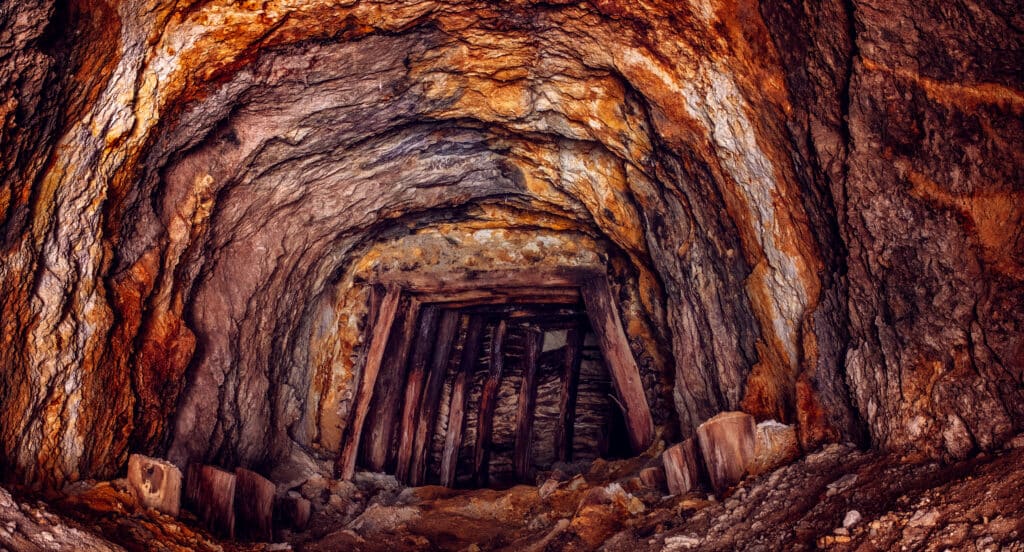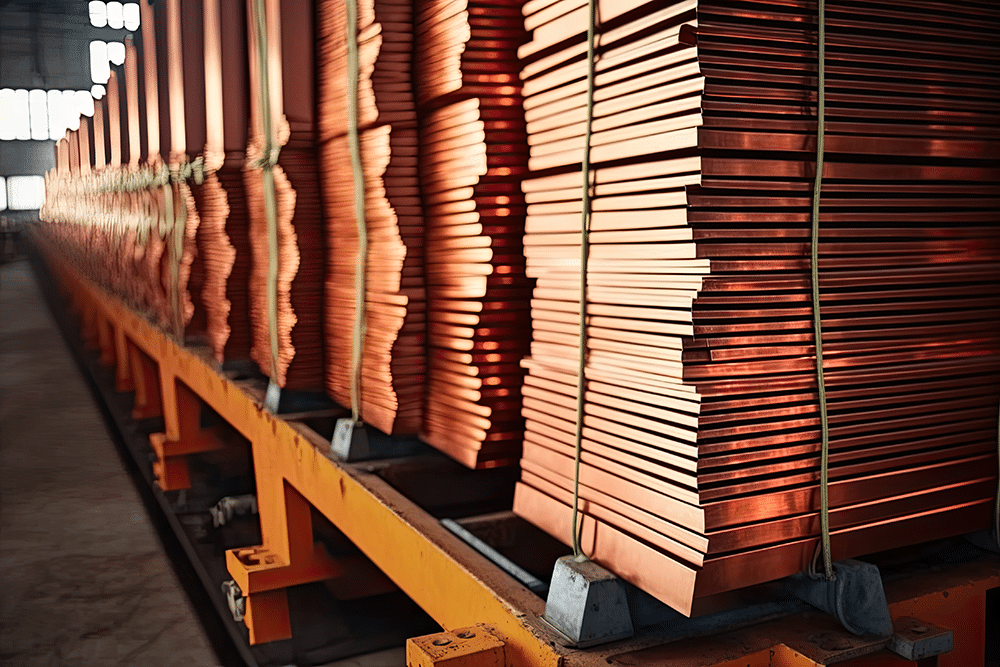It took about 24 months for the price of copper to reach the psychological mark of U.S. $10,000 per metric ton. Three-month copper futures on the London Metal Exchange (LME) touched the $10k mark last week. The last time copper crossed this threshold was in March 2022, when it reached $10,845 per ton in the wake of Russia’s invasion of Ukraine. Many copper experts currently predict a continued uptick in the base metal’s price in the upcoming months, but for the wrong reasons.
Be sure to stay ahead of the rising price of copper. Opt into MetalMiner’s free Monthly Metals Index report and use it to anticipate market changes and make strategic copper purchasing decisions.
The Rising Price of Copper: Supply Shortfall?
Analysts attribute much of the copper price rise to soaring demand. Market demand for copper continues to increase, mainly due to the large role the metal plays in renewable energy. However, this latest round of copper price increases does not stem from demand alone; it is also because supply has repeatedly failed to keep pace with demand.
For instance, copper supply continues to falter due to increased tightening of mining regulations, geopolitical tensions, and mining labor strikes. Despite copper producers’ eagerness to increase output, there is also a shortage of new mine construction. Simply put – mines are not producing as much copper as the market requires. Obviously, this shortage helps drive the price of copper up.

The landmark $10K episode occurred near-simultaneously with another event: a $38.8 billion takeover bid by mining giant BHP Group for British rival Anglo American PLC, which surprised virtually everyone in the market. Still, according to media reports, Anglo rejected the offer as being “highly unattractive” and “opportunistic.”
The Copper Journey
Copper is integral to many domestic and commercial applications, including electrical switches, solar panels, and electric vehicle components, to name a few. Many experts saw last week’s new price point coming, as the metal had already increased in value by about 20% this year.
The top five copper-producing countries are Chile, Peru, the Democratic Republic of Congo (DRC), China, and the U.S. Over the last few years, copper experienced a loss of a million tons due to mine disruptions. Analysts currently estimate global copper reserves at 870 million metric tons (MMT), with a yearly demand of about 25 MMT. In 2022, copper production was about 22 MMT, while demand was about 26 MMT, with recycled copper making up the difference.
Canadian Mine Closure Sparks Supply Concerns
According to this Reuters report, copper prices accelerated higher after the closure of Canadian miner First Quantum Minerals’ Cobre Panama copper mine last year, as this raised the prospect of shortages of copper concentrate. Then, there are the tighter supply-demand dynamics in China, where an uptick in manufacturing activity over the last few months continues to fuel optimism for copper.

If this trend continues, China will start consuming more copper very soon, adding to the demand-supply pressure. On average, China consumes over 8 MMT of the total global copper produced today, followed by the EU/UK at 2 MMT and North America at 1.4 MMT. China now imports roughly 20% of its copper from the DRC, 7% from Chile, and the rest from Russia, Japan, and Australia to fuel this demand.
Get valuable copper market trends, copper price updates, and commodity news, supporting your business in mitigating the impact of increasing copper prices. Register for MetalMiner’s free weekly newsletter.
Could Copper Hit $15k in the Near Future?
The Reuters report also quoted a portfolio manager at Valent Asset Management as saying that copper scarcity would be the real test in the coming days. Specifically, they highlighted the question of whether the price of copper would remain around $10,000 or go even higher. Jay Tatum said that copper was finally moving on from being an investment story with a load of promises to one where those promises are starting to pay off.

Another report in The Globe And Mail said that the demand for copper could reach as much as 33 MMT in the long run. In such a case, production will not be able to keep up with supply. It takes about a decade for a new copper mine to go from prospecting to production. This could result in a yearly deficit of about 6 MMT by 2030.
The same report suggested that the price of copper could reach U.S. $15,000 a metric ton in the coming years. That said, the price could be under further pressure if predicted interest-rate cuts were to weaken the demand for the U.S. dollar and bolster demand for commodities priced in U.S. dollars.
Not sure why you should trust MetalMiner’s opinion about where copper prices are headed? Take a look at our track record.




